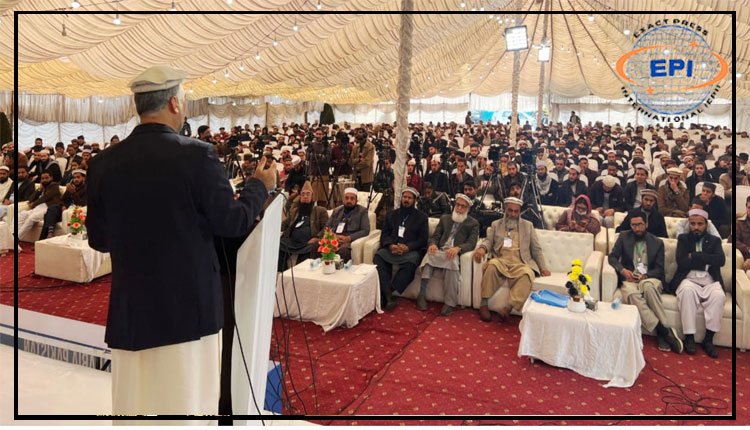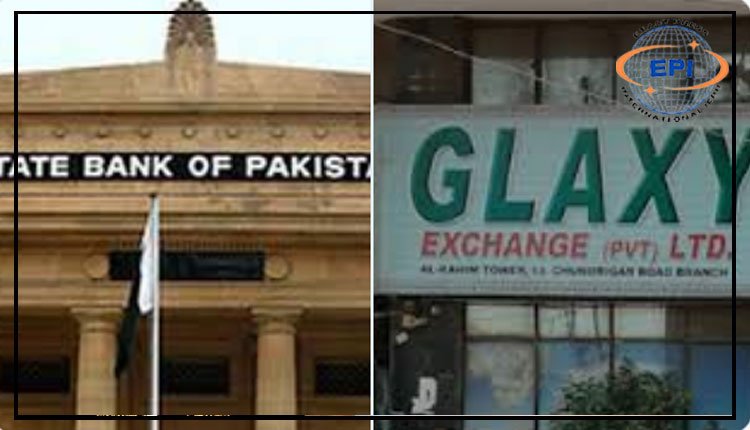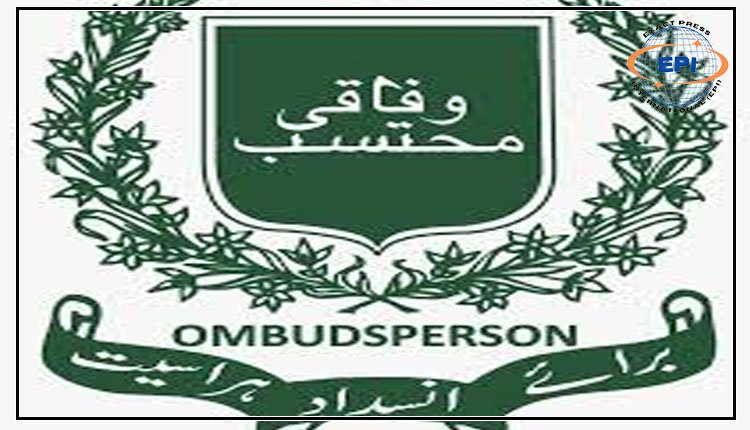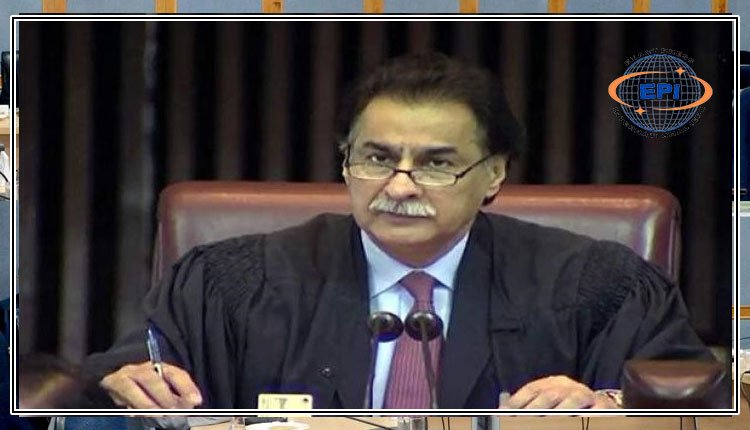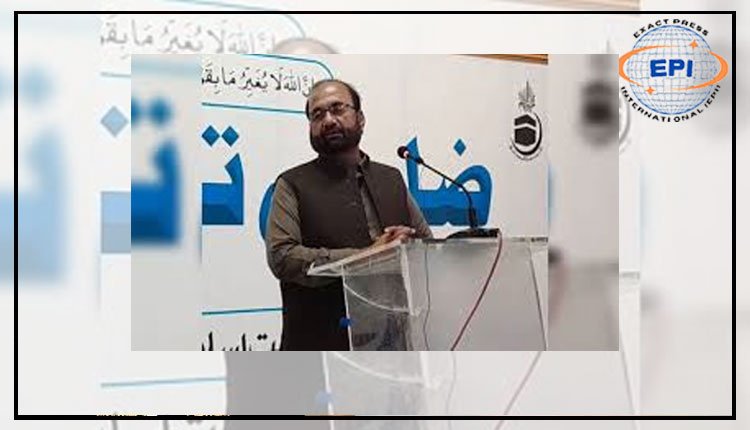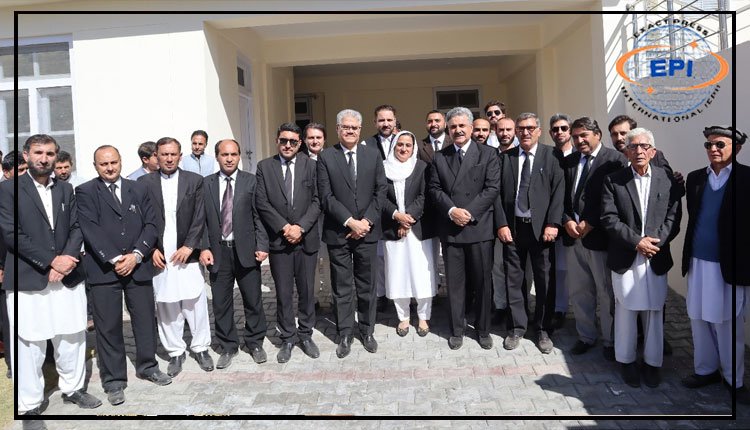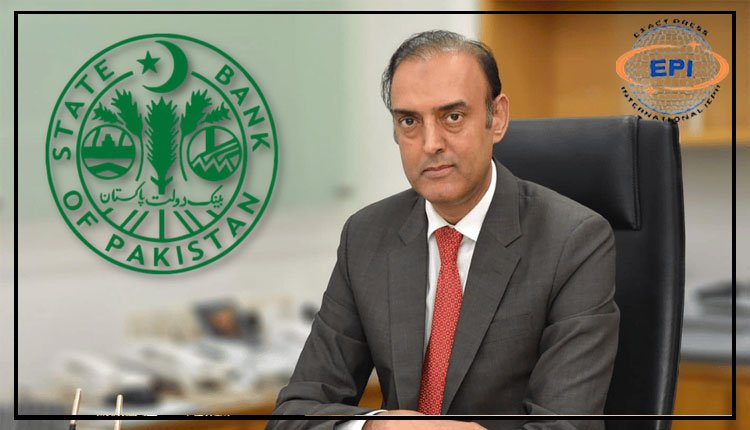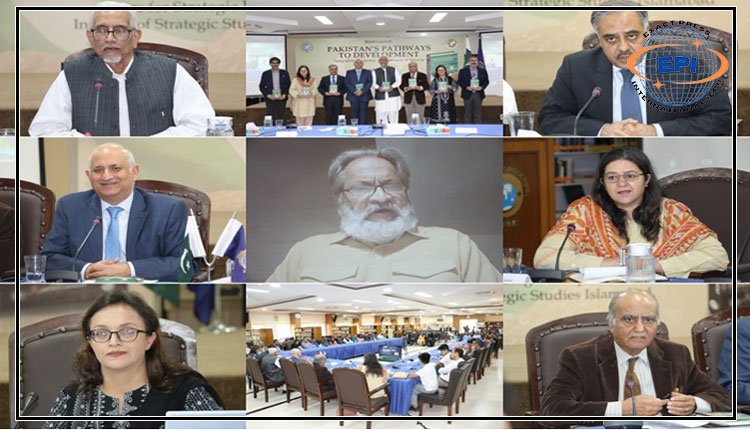ISSI’s new book launched, titled “Pakistan’s Pathways to Development: Integrating Economy, Environment & Society”
ISLAMABAD, Oct 10 (EPI) :The Centre for Strategic Perspectives (CSP) at the Institute of Strategic Studies Islamabad (ISSI) organized the launch of its first edited book, Pakistan’s Pathways to Development: Integrating Economy, Environment, & Society.
The Guest of Honor on the occasion was Dr. Waqar Masood Khan, Former Advisor to the Prime Minister on Finance. Speakers included Mr. Haroon Sharif, Former MoS/Chairman, BoI; Ms. Kosar Bano; Dr. Faisal Bari Associate Professor, LUMS; and Dr. Safdar Sohail, ED, SPRC.
Guest of Honor, Dr. Waqar Masood, congratulated the ISSI for taking the initiative to publish a book that features diverse writers from various disciplines. He also praised each contributor for selecting timely and relevant topics. In his remarks, Dr. Waqar highlighted the significant challenges Pakistan faces on both international and domestic fronts.
On the international stage, Dr. Waqar noted that while Pakistan has made progress despite many obstacles, the country is currently confronting unprecedented problems. He emphasized that Pakistan has been under sanctions, limiting its access to international markets compared to regional competitors like Bangladesh. This context, he suggested, is critical in understanding why Pakistan has not progressed at the same pace as its competitors.
Domestically, Dr. Waqar pointed out that despite multiple forums, resources, and institutions, Pakistan has not been able to address fundamental challenges such as population control, access to education, and, most importantly, the lack of political will to tackle these issues. He also underscored the growing challenge of the youth bulge in the country.
In conclusion, Dr. Waqar emphasized that discussions on macroeconomic stability must incorporate key issues such as gender inclusion, equality, the reduction of income disparities, and ensuring access to essential services like health and education.
He underscored the importance of addressing these critical topics in such publications to ensure they remain central to policy planning and decision-making processes.
In his remarks, Ambassador Sohail Mahmood, Director General of ISSI, highlighted key insights from the book, focusing on its critical themes of Economy, Environment, and Society.
He stated that the authors had emphasized the importance of enhancing Pakistan’s economic competitiveness through export promotion, leveraging digital technologies, and aligning economic policies with global geo-economic shifts.
Ambassador Sohail Mahmood added that they had underscored the need for a green transition to ensure sustainable energy security and stressed the significance of addressing educational reforms, poverty alleviation, and youth empowerment.
He further noted the book’s emphasis on linking demographic trends and gender inclusivity to Pakistan’s sustainable development goals. In conclusion, he commended the book for offering a strategic vision to guide Pakistan’s economic progress and sustainable development in a rapidly evolving global landscape.
Dr. Neelum Nigar, in her opening remarks, highlighted that the book arrives at a pivotal moment, as the global conversation on development increasingly stresses the importance of a holistic, integrated approach.
She further stressed that for Pakistan, this shift is especially critical, given the current state of its economy, which faces persistent macroeconomic challenges, sluggish growth, and escalating external debt. The book brings together a diverse group of experts who advocate for Pakistan to adopt integrated strategies that recognize the complex interplay between the economic, environmental, and social spheres.
Mr. Haroon Sharif, in his remarks, stated that the biggest challenge Pakistan faces is restructuring the economy towards a more competitive economy that can integrate with the region. The economy of Pakistan for long has been based on the usage of its geopolitical and geo-strategic positioning rather than competitiveness.
The world now looks at issues like geopolitics, climate change, pandemics, and global supply chains as all part of economic competitiveness. Pakistan needs to create jobs, increase productivity as well as production, introduce the use of emerging technologies, and export to the GDP challenge to meet comparative advantage and introduce serious economic prepositions.
Dr. Faisal Bari touched upon the issue of population, the quality of education, out-of-school children, poverty, lack of health, and malnutrition. He was of the view that Pakistan, compared to other countries with the same level of income, has not invested in education and health and thus has achieved growth without development.
One of the primary reasons for the failure to address this challenge is the lack of political will, lack of priority, and unstable economic conditions. To meet these challenges, Pakistan must make necessary interventions on the quality of education, access to education, and nutrition issues among many others.
Ms. Bano discussed the differentiated impacts of climate crises on men and women, highlighting how gender roles and inequalities exacerbate vulnerabilities among women and girls. She emphasized that women’s traditional roles in agriculture, water collection, and household management make them particularly susceptible to increased workloads and limited resources during climate-related disasters.
Ms. Bano stressed the importance of gender-sensitive policies and inclusive decision-making to enhance women’s resilience and adaptive capacities in the face of climate change. She also underscored the critical role of women in disaster preparedness, response, and rehabilitation efforts, advocating for their empowerment through training and community engagement.
Dr. Safdar Sohail stated that the economic phenomenon has the autonomy to impact the social institutions and structures of the society and the growth and decline of the economy impacts social organization and structure likewise. Each society has a social purpose which when challenged by stresses of negative social change impacts social purpose and harmony in any society.
He added that in his chapter he has used the concept of “anomie” as an indicator that Pakistani society today is experiencing the erosion of values reflecting the phenomenon of “social anomie” and another dimension of anomie prevalent in Pakistan is the distrust of institutions called “institutional anomie.”
Dr. Sohail concluded by emphasizing that Pakistan must challenge imposed narratives of individual freedom and human rights to forge its temporal ontology. Unlike India, we face the dual challenges of property ownership expansion and neo-liberal financial capitalism that favors specific social groups. By addressing this financial stranglehold, we can foster a balance between wealth accumulation and social justice among property owners.
Concluding the event, Ambassador Khalid Mahmood, Chairman BoG ISSI, highlighted that since the National Security Policy of 2021, Pakistan has intentionally pivoted towards geoeconomics and comprehensive security.
Today, the nation not only pursues development but also emphasizes sustainable development and inclusive social progress. Ambassador Mahmood also commended the ISSI team for their diligent efforts in publishing the book.
Ends-Exact Press International-

